In the 2018 National Defense Authorization Act, the United States Congress ordered the Department of Defense to conduct a study aimed at wholesale overhaul of its military officer promotion policies.[1] Issues to be considered include reordering promotion lists so that officers “of particular merit” will be placed at the front of the line and modifying the current “up or out” policy under which officers must be placed in a rank appropriate military command or must retire.[2] Just as today’s Congress asserts its authority over generals, the Revolutionary Continental Congress also asserted its control over the officer promotion process. In both eras, Congressional oversight leads to disputes among political leaders and the officer corps.
During the Revolutionary War, the Continental Congress appointed and promoted twenty-nine officers to major general, the highest rank under Washington.[3] During the eight year war, there were four key events that caused Congress to name new major generals: the initial formation of the Continental Army, the expanding British invasion threat of 1776, the need for a professional army in 1777 and 1778, and lastly the later years of the war and the need to recognize state contributions and meritorious service. Bitter promotion controversies among the generals and Congress occurred during each of these periods.
Initial Formation of the Continental Army
On June 16, 1775, Congress appointed George Washington to lead the nascent Continental Army as its commander-in-chief. The next day, coincidently the date of the Battle of Bunker Hill, the Continental Congress named four major generals in rank order, Artemas Ward, Charles Lee, Philip Schuyler and Israel Putnam. Immediately, unhappiness with the appointments and the rank order led to rancorous and in some cases unresolvable disputes among the new military leadership.
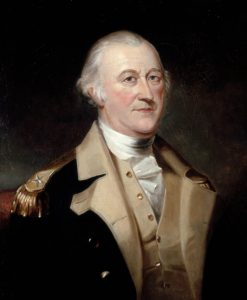
Although ranked first in order among the new major generals, Artemas Ward, the senior officer of the Army of Observation, rightly prognosticated that the appointments would create “uneasiness” among the militia officers currently contesting the British Army occupation of Boston.[4] For a variety of public and private reasons, Ward and Washington were not able to forge a strong working relationship.[5] Suffering from chronic, debilitating stones[6] and seeing that his talents might be better used politically, Ward tendered his resignation a few days after the British forces evacuated Boston in April 1776.[7]
Another initial major general, foreign-born Charles Lee, chafed at having to serve under George Washington but understood the need for a native leader, which guarded his honor. However, when Lee learned that he would be junior in rank to Ward, he was totally distressed and called it “the highest indignity.”[8] A year later in a letter to Congressman Richard Henry Lee, Charles Lee derisively dubbed Ward “an old church-warden.”[9]
Further, two generals in the Connecticut state militia, David Wooster and Joseph Spencer, expressed public outrage as Congress named Israel Putnam, a more junior officer in the state militia, a major general and not them. Even George Washington was not pleased with this controversy.[10] The last of the initial appointments, Philip Schuyler was not immediately controversial, but he would be embroiled in vicious political and military command clashes during his four years of service.
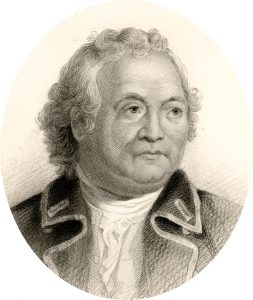
Anticipating the possibility of future promotions to augment the initial four major generals, officers lobbied Congress to recognize prior service ranks and to adhere to seniority rank order in their selections. Intensely concerned with perceived honor, Revolutionary era officers believed that promoting an officer lower in seniority above them caused irreparable disgrace leading to the only the only remedy, resignation. Nathanael Greene advised Congress to follow a strict seniority order and wrote to John Adams, “I would never give any Legislative body an opportunity to humiliate me but once.”[11]
Exacerbating their concerns, Northern officers believed that Congress favored Southerners in making promotions.[12] In addition, there were disputes as to how to recognize previous ranks in the colonial militia and in the British Army as the ranks and experiences were not comparable. Officers aggressively lobbied Congress on these issues. For example, during the spring and summer of 1776 Samuel Holden Parsons sent a flurry of five letters to fellow Harvard University classmate and congressman John Adams on promotion policies and even went so far as to recommend specific officers for promotion.[13] Holden ceased writing Adams on the topic of promotions after the Battle of Brooklyn when other issues such as who was to blame for the disastrous loss came to the forefront.
However, the Continental Congress reserved the right to go outside of the seniority rank order to promote generals based upon meritorious conduct as well as other political or military factors. The first two brigadier general to major general promotions resulted from these latter factors. While Philip Schuyler was in charge of the entire northern theater, Congress believed that a major general was required to command the large number of Patriot troops in Canada. On December 10, 1775, Richard Montgomery, the senior officer in Canada, received the first major general promotion. Technically, Montgomery bypassed two higher ranked brigadier generals, Horatio Gates and John Thomas; however, there was little controversy as the promotion was done on an exigency basis and further, Montgomery was killed in action three weeks later.
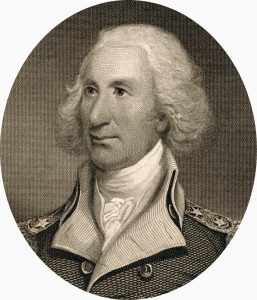
To replace Montgomery, Congress could have turned to Brig. Gen. David Wooster, third on the list, who was the senior officer left in Canada. However, Congress lacked faith in Wooster and declined make a “battlefield promotion” similar to the one they had bestowed on Montgomery. Instead, on March 3, 1776 Congress selected Brig. Gen. John Thomas for promotion over Horatio Gates and instructed him to assume command in Canada. An aggressive general, Thomas joined the Continental Army on the siege lines outside the walls of Quebec City. Just a few weeks later, Thomas died of small pox. Ironically when incapacitated by illness, he placed Wooster in temporary charge of the Patriot forces. However, based upon recommendations of a Congressional delegation to Canada, Congress recalled Wooster on June 6, 1776 to headquarters as unfit for duty.[14]
By the summer of 1776, Montgomery and Thomas had perished; Ward offered his resignation, leaving only Lee, Putnam and Schuyler to assume critical military commands. Serving only an average of 2.4 years, these six major generals were among least successful Revolutionary War generals.[15] To successfully prosecute the rebellion, Congress needed additional senior military leadership.
Expanding the Army to Meet Northern Threats
Reacting to the impending British invasion of New York, Congress promoted a second group of five major generals, three of whom would serve for the war’s duration. In keeping with Continental Army seniority, Congress promoted the first in rank brigadier general, Horatio Gates, as the next major general on May 16, 1776. Gates enjoyed the formidable support of John Adams and many delegates from New England.[16] However, even a promotion in rank order with strong political support generated controversies among the other generals. For example, William Heath asserted that he should have been promoted before Gates. Although Gates was more senior in the Continental Line, Heath reasoned that he had seniority due to having served at Lexington and Concord and having been a major general in the Massachusetts militia while Gates was only a major in the British Army when they received their Continental commission in June 1775.[17]
As much of the fighting centered in the north, in August 1776 Congress promoted four New England brigadier generals in the following order: William Heath (Massachusetts), Joseph Spencer (Connecticut), John Sullivan (New Hampshire) and Nathanael Greene (Rhode Island), all rank-order promotions with one exception. Congress bypassed David Wooster given his recent recall from the Canadian campaign. As this perceived slight irreparably impinged his personal honor, Wooster shortly thereafter resigned his commission.[18]
Becoming a Professional Army
In 1777 and 1778, the urgent need for additional military leadership and technical proficiency led Congress both to appoint foreign volunteers and to promote additional major generals. In an attempt to quell general officer discontent by establishing well-defined principles, Congress vigorously debated policies governing promotions. In the end, on February 19, 1777 Congress adopted a vague resolution: “Resolved, That in voting for general officers, a due regard shall be had to the line of succession, the merit of the persons proposed, and the quota of troops raised, and to be raised, by each State.” This allowed Congress to do as it wished, not satisfying the generals.[19] In 1777, under this resolution and with the diplomatic need to direct-commission foreign volunteers, Congress authorized the greatest number of (twelve of a total twenty-nine during the entire war), and the war’s most controversial, major general promotions and appointments.
Starting on February 19, 1777, Congress promoted four brigadier generals (William Alexander, Thomas Mifflin, Arthur St. Clair and Adam Stephen). In addition, Benjamin Lincoln, a Massachusetts militia general, received a direct commission, the only time after the initial establishment of the Continental Army that an American was directly commissioned a major general. With these five new major generals, Congress bypassed six brigadier generals with higher seniority. In a letter to John Adams, Nathanael Greene summarized the reactions of those officers bypassed: “I fear your late Promotions will give great disgust to many.”[20]
Most prominently, Congress omitted Benedict Arnold from its initial 1777 promotion list. Arnold held more seniority than all four generals Congress promoted and earned stronger meritorious service credentials based upon his valorous leadership at the Battle of Valcour Bay and service in Canada. However, Congress reasoned that Connecticut already had two major generals (Putnam and Spencer), and its contributions of soldiers did not warrant a third. After further evidence of Arnold’s highly effective military command capabilities during a British raid on Danbury, Connecticut, Congress promoted Arnold to major general. However, Arnold’s commission was dated May 2, 1777, still leaving him junior in rank to the five recently promoted major generals. An incensed Arnold, with Washington’s support, waged an aggressive campaign to “restore” his rank. After an eight-month dispute with Congress, Washington received authorization to backdate Arnold’s major general commission to February 17, 1777, moving him ahead in rank.[21]
Congress also bypassed promoting Andrew Lewis, a Virginian who Washington held in high regard. Washington attempted to dissuade Lewis from leaving the army due to this snub. However, Lewis’s honor could not withstand the slight and he resigned. John Armstrong likewise resigned due to the insult to his honor. Ironically, in 1779 the Pennsylvania Senate elected Armstrong to the Continental Congress where he served as an active supporter of Washington and the army. More understandably, Congress bypassed William Thompson, the fourth in line brigadier general, as he was legally a prisoner of war on parole. Thompson would be bypassed four more times during his four plus years on parole. Highly resentful for not being exchanged earlier, Thompson publically confronted Congress, leading to a censure for libel.[22] Thompson never returned to active duty and resigned on September 3, 1781. James Moore, the fifth bypassed brigadier general, died shortly after being bypassed; the last bypassed brigadier general, Robert Howe, chose to remain on duty.
In addition to promotions during this period, Congress directly commissioned four foreign military officers as major generals. The most controversial appointment was a volunteer from France, Philip Du Coudray, the French Army adjutant general of artillery and one of the its best army engineering officers. In France, Benjamin Franklin had promised Du Coudray the position of general of artillery and ordinance. Upon his arrival in the United States, many American and French generals threatened to quit if Du Coudray was placed above them in this role. Washington smoothed over the situation by assigning Du Coudray to a staff position rather than a command position. Within a few months of joining the Continental Army, however, De Coudray drowned in an accident crossing the Schuylkill River in Pennsylvania. The other three major general appointees, Marquis De Lafayette, Johann De Kalb and Baron Von Steuben would go onto garner widespread admiration and respect of the general officer corps.
In the fall of 1777, Congress appreciated the need to politically recognize states without major generals and promoted Robert Howe from North Carolina along with Alexander McDougall from New York. In the process, Congress bypassed Massachusetts’ John Nixon, as he did not have vital support from his home state. Congressman John Adams assessed Nixon as “brave but not large of mind.”[23] Although acquitting himself well during the battles in the Saratoga campaign, Nixon would be bypassed four more times before resigning his commission on September 12, 1780.
Infamously, the last promotion of 1777 caused the largest firestorm. Passing over twenty-four more senior brigadier generals on December 13, 1777, Congress promoted French volunteer Thomas Conway from brigadier general to major general. With this promotion, Congress attempted to politically sort out amiable relationships among the best French volunteers; however, it sent shock waves throughout the general officer corps. Nine of the bypassed brigadier generals sent a letter of protest to Congress. Maj. Gen. John Sullivan followed up with a letter to Washington stating that the “Inclosed Memorial Shows forth as well The Sentiments of the General officers absent as those who have Signed.”[24] Further, Major General Sullivan sent a letter directly to the president of Congress, Henry Laurens, stating that Conway’s promotion, “has universally Disgusted the Field officers of the Northern Army.”[25]
Within a few weeks, Conway became embroiled in the politics designed to replace Washington with Gates as the commander-in-chief. Having besmirched Washington and never earning the respect of his peers, Conway resigned after serving less than five months and returned to France to lead an unremarkable career. However, he earned lasting ignominy through his purported efforts to replace Washington that historians have eponymously labeled as the Conway Cabal.
Balancing Interests in the Later War Years
With Conway’s promotion, the number of major generals in the Continental Army peaked at eighteen. As the Continental Army shrank in size over the war’s last six years, there was little need for additional major generals. As a result, Congress reduced the number of major generals to between thirteen and fifteen and promoted generals only when vacancies occurred. The last five new major generals served for an average of 7.7 years, and represented either unique military expertise or states without major generals. Breaking the promotion drought on September 15, 1780, Congress promoted William Smallwood, bypassing in rank Samuel Holden Parsons. Washington concluded that Congress advanced Smallwood principally to recognize the large number of Maryland soldiers in service with no major general from the state.[26]
A month later, Congress removed the self-perceived snub of Parsons by elevating the Connecticut resident to major general. Parsons would be the only active duty Connecticut native to hold a major generalship through the end of the war.[27] Recognizing that South Carolina lacked a major general throughout the war, Congress promoted William Moultrie on October 15, 1782. The general officer corps generally accepted these promotions as necessary for politically balancing the contributions of the states. In this process, Congress bypassed New Yorker James Clinton four times, but he continued to ably serve on the New York frontier through the war’s end.
Late in the war, Congress promoted the highly regarded Henry Knox and Louis Duportail to recognize their unique contributions in the fields of artillery and engineering, respectively. Although they bypassed more senior brigadier generals, no honor was at stake, as they did not bypass any other officers in their military specialties.
In the end, the Continental Congress fully exercised its prerogatives to promote general officers based upon criteria they felt most important. While the most controversial decisions were associated with the appointment or promotion of foreign volunteers, there were several instances of bypassing American-born or resident officers that caused them to resign. On the other hand, several bypassed officers reconciled their contributions with their recognition and continued to execute their brigadier general responsibilities. Congress’s final authority over officer promotions continues to this day and civilian control over the military is a bedrock principle of American democracy.
[1] National Defense Authorization Act for Fiscal Year 2017, Conference Report, S2943, November 30, 2016, www.congress.gov/114/crpt/hrpt840/CRPT-114hrpt840.pdf, accessed December 16, 2017.
[2] “Congress Orders DoD to Study Changes to Its Officer Promotion System,” FederalNewsRadio.com, November 15, 2017, federalnewsradio.com/defense-main/2017/11/congress-orders-dod-to-study-changes-to-its-officer-promotion-system/.
[3] Service and promotion dates and rank are from Francis B. Heitman, Historical Register of Officers of the Continental Army During the War of the Revolution (Baltimore: Clearfield, 1982).
[4] Artemas Ward, “Artemas Ward’s Acceptance of His Continental Army Major General Commission,” Ward Family Papers, 1661-1919. Box 1. Folders 1-5, 11-33. Manuscripts Department, American Antiquarian Society. Artemas Ward (1727-1800), Papers, n.d.; 1758 – 1795, Folder 3. 1775, June 30, 1775, Harvard University, Collection Development Department. Widener Library. HCL, nrs.harvard.edu/urn-3:FHCL:900190?n=36.
[5] For a point of view on why Artemas Ward and George Washington were not able to establish an effective working relationship, see Charles Martyn, The Life of Artemas Ward, the First Commander-in-Chief of the American Revolution (Port Washington, NY: Kennikat Press, 1970), 174–75.
[6] The historical record is unclear as to whether Ward suffered from gall, kidney or bladder stones.
[7] Due to Ward’s strong following in Massachusetts, Washington and Congress delayed acceptance of his resignation until March 1777, after the British threats to Boston ceased.
[8] Charles Lee, The Lee Papers, ed. Henry Edward Bunbury (New York: New York Historical Society, 1872), 1: 197.
[9] Ibid, 2: 146-148.
[10] George Washington et al., The Papers of George Washington. Revolutionary War Series (Charlottesville: University Press of Virginia, 1985), 1: 83-87.
[11] Nathanael Greene to John Adams, June 2, 1776, founders.archives.gov/documents/Adams/06-04-02-0100, accessed December 18, 2017.
[12] Richard K Showman, Margaret Cobb, and Robert E. McCarthy, eds., The Papers of Nathanael Greene (Chapel Hill: The University of North Carolina Press, 1976), 1: 254.
[13] Samuel Holden Parsons to Adams, August 15, 1776, National Archives, Founders Online, founders.archives.gov/documents/Adams/06-04-02-0212, accessed December 22, 2017.
[14] “Letters of Delegates to Congress: Volume 4 May 16, 1776 – August 15, 1776: Commissioners to Canada to John Hancock,” memory.loc.gov/cgi-bin/query/D?hlaw:2:./temp/~ammem_VHUg::@@@mdb=mcc,aap,consrvbib,vv,presp,varstg,suffrg,hlaw,aaodyssey,coolbib,fpnas,mff,mnwp,rbcmillerbib,ww2map,mfdipbib,klpmap,rbaapcbib,mal,ncpm,psbib,mharendt,fawbib,afcpearl,awh,awhbib,afcesnbib, accessed December 18, 2017.
[15] For more data analytics on the Continental Army major generals see, Eugene Procknow, “Continental Army Major Generals – Service and Promotion Data Analytics,” Researching the American Revolution (blog), December 30, 2017, researchingtheamericanrevolution.com/major-generals/continental-army-major-generals-service-and-promotion-data-analytics/.
[16] Adams to Horatio Gates, April 27, 1776,” Founders Online, National Archives, founders.archives.gov/documents/Adams/06-04-02-0058, original source: The Adams Papers, Papers of John Adams, vol. 4, February–August 1776, ed. Robert J. Taylor (Cambridge, MA: Harvard University Press, 1979), 146–148.
[17] William Heath to Adams, July 20, 1776, founders.archives.gov/documents/Adams/06-04-02-0172, accessed December 18, 2017.
[18] In the end, a Congressional investigation found nothing in Wooster’s conduct that was “censorable or blameworthy.” However, he did not resume Continental service and resigned. Shortly after returning to his native state of Connecticut, Wooster led a militia unit in contesting a British raid on Danbury and lost his life in the ensuing battle. For a balanced view of Wooster’s contributions, see Mark R. Anderson, The Battle for the Fourteenth Colony: America’s War of Liberation in Canada, 1774-1776 (Hanover, NH: University Press of New England, 2013), 337, 359.
[19] “Journals of the Continental Congress, Wednesday, February 19, 1777,” American Memory, A Century of Lawmaking for a New Nation: U.S. Congressional Documents and Debates, 1774-1875, memory.loc.gov/cgi-bin/query/D?hlaw:1:./temp/~ammem_7F1F::, accessed December 22, 2017.
[20] Greene to Adams, March 3, 1777, founders.archives.gov/documents/Adams/06-05-02-0053, accessed December 19, 2017.
[21] George Washington to Benedict Arnold, January 20, 1778, National Archives, Founders on Online, founders.archives.gov/documents/Washington/03-13-02-0246, accessed December 22, 2017.
[22] “Journals of the Continental Congress, Monday, November 23, 1778,” American Memory, memory.loc.gov/cgi-bin/query/D?hlaw:13:./temp/~ammem_lxc6::, accessed December 22, 2017.
[23] Adams to Samuel Holden Parsons, August 11, 1776, founders.archives.gov/documents/Adams/06-04-02-0200, accessed December 22, 2017.
[24] John Sullivan to Washington, January 2, 1778, founders.archives.gov/documents/Washington/03-13-02-0102#GEWN-03-13-02-0102-fn-0001, accessed December 21, 2017.
[25] Otis G. Hammond, Letters and Papers of Major General John Sullivan Continental Army (Concord, NH: New Hampshire Historical Society, 1931), 2: 14.
[26] Washington to Sullivan, November 25, 1780, founders.archives.gov/documents/Washington/99-01-02-04058, accessed December 21, 2017.
[27] Maj. Gen. Israel Putnam remained on the official Continental Army roles to June 3, 1783, but never assumed any command after his incapacitating 1779 stroke.






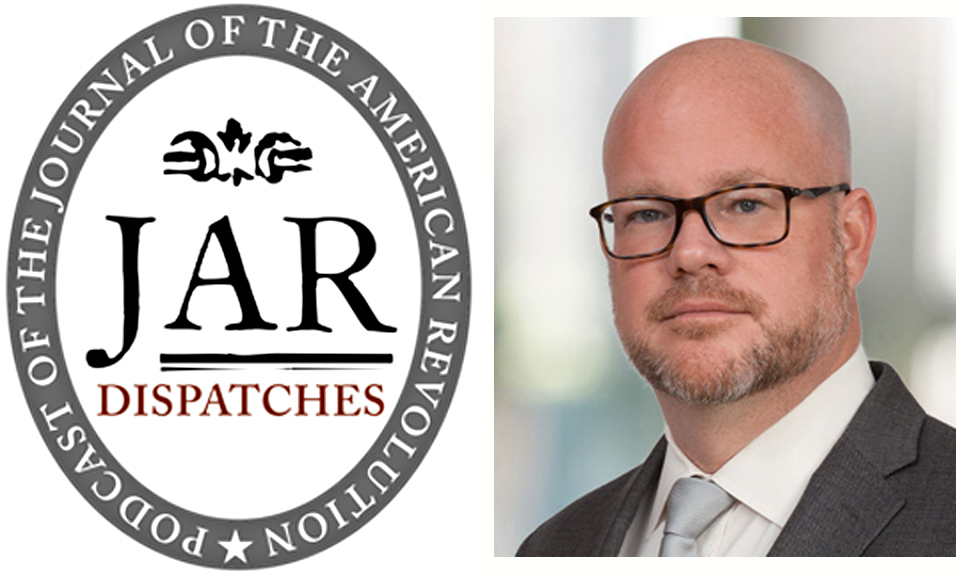
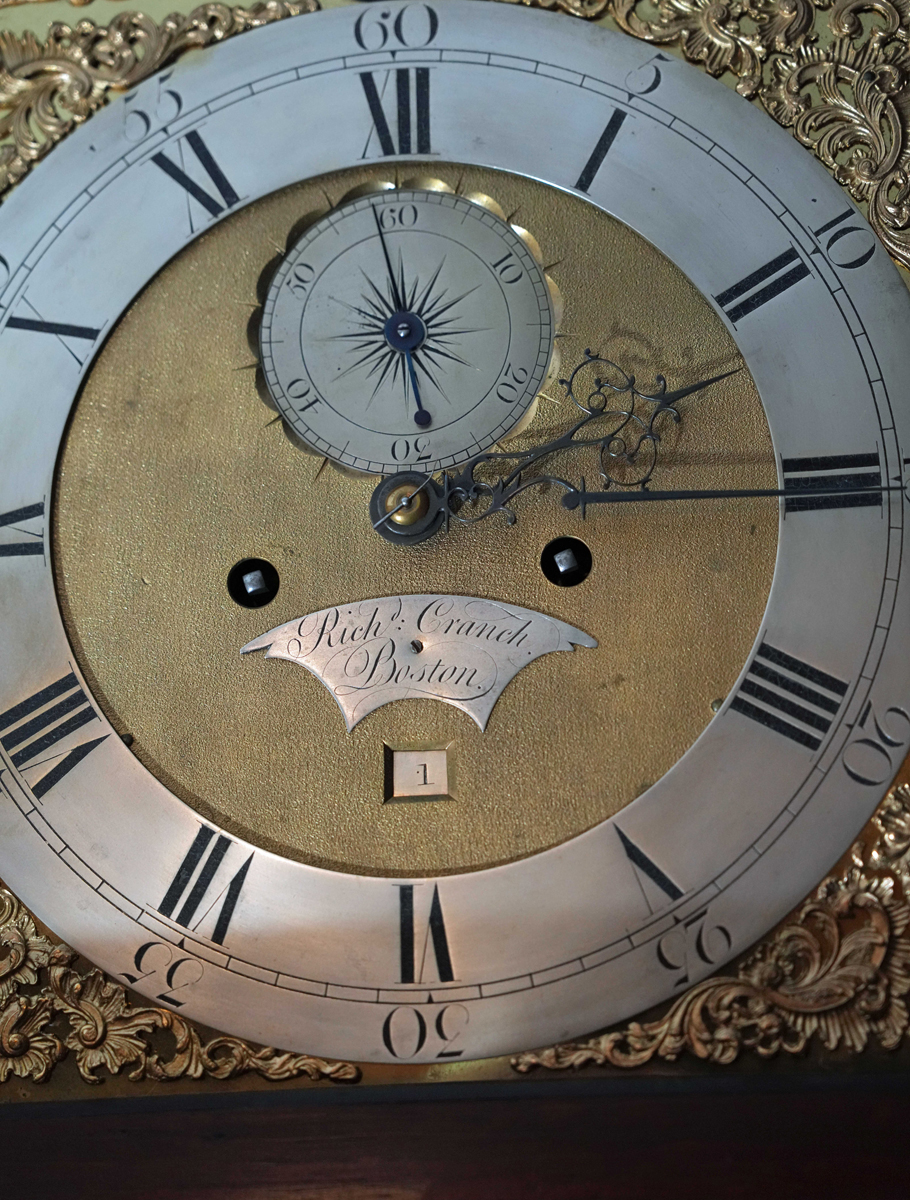

4 Comments
Good article Gene. Although he had his problems, Wooster is one of the few generals who does not have a published biography. Hopefully some one will rectify this oversight.
Thank you Steve. Historians have unfairly treated Wooster. John Thomas’ confidence in Wooster is telling as was giving his life in the Rebel cause at Danbury. I agree that a more balanced assessment would greatly benefit Revolutionary historiography.
I loved the article for its insight into how many General’s fought not only the enemy but each other. General Nathanial Greene, a man with a pronounced limp was considered by some not fit to be a Kentish Guard ( East Greenwich, RI) . When Washington saw Greene marching his men at Bunker hill he was most impressed. Thus began a close relationship and protection as Washington shielded Green from the rath of Congress, advocating to make Greene his quartermaster, after devastating losses in the Battle of Long Island. It did not hurt that Greene’s wife the winsome katy Littlefield of R.I.was reportedly one of Washington’s favorite dance partners.
Really enjoyed this excellent summary of the military promotion drama that followed Washington and Congress throughout the war. Very well written. Another point to make is how many lower ranking officers, even if they had fought in the French and Indian War , would be slighted for newbie elite militia officers who had seen no military action but had a higher social status and I guess more $$$ to outfit a troop